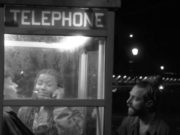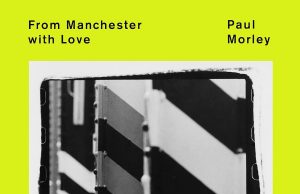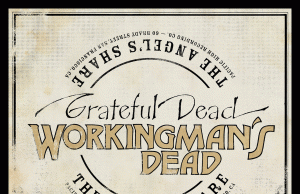 As we were driving through the suburban sprawl spreading into Ottawa’s outskirts, my partner started singing something about the “ticky tacky” houses. I had no idea what she was talking about, so she grabbed my phone and commandeered Spotify to play the song Little Boxes by Malvina Reynolds. It was written in 1961. Pete Seeger‘s version (which you can see above) came out in 1967. Reynolds’ version was also used as the theme song for the TV show Weeds.
As we were driving through the suburban sprawl spreading into Ottawa’s outskirts, my partner started singing something about the “ticky tacky” houses. I had no idea what she was talking about, so she grabbed my phone and commandeered Spotify to play the song Little Boxes by Malvina Reynolds. It was written in 1961. Pete Seeger‘s version (which you can see above) came out in 1967. Reynolds’ version was also used as the theme song for the TV show Weeds.
It really is startling just how little things have changed since 1961. Or perhaps just how long this has been going on. The every-place-looks-exactly-the-same sprawl houses and units are actually quite surreal. So too is the constant dynamite blasting, which happens every day so they can carve more foundations into the former farmland bedrock.
It’s hard to find genuinely affectionate songs about the suburbs, apart from a local Ottawa favourite of mine — Bells Corners by New Swears. I feel personally connected to this one because I used to live there for 12 years, four houses down from where the band rehearsed as teenagers. In fact, one of their sisters bought my house.
The song is a paean to growing up in Bells Corners, on the edge of Ottawa’s Greenbelt, from the point of view of a bunch of exhausted young men who started a hardworking party band and toured far and wide for a few years. It’s sort of their version of Home For A Rest.
https://www.youtube.com/watch?v=ZD4WUNz9eDs
Over on the other side of the Greenbelt, singer-songwriter and home-based studio owner Jim Bryson lives very near a bunch of never-ending, sprawl-related explosive detonations. It is the house he grew up in, and you needn’t look much further than his lyrics to learn about how much the former rural community has changed.
He even has a record called Where The Bungalows Roam (2007), but there are also several references to this on his stunning 2016 album Somewhere We Will Find Our Place, like this one in Call Out:
“I will throw rocks at the trucks that chase all of the birds here nesting,
And ruin these quiet afternoons for me
And can we knock down the buildings that grow in between you and me
To keep the day-to-day a weak peace?”
Bryson’s neighbourhood, which is also my neighbourhood, is nearly surrounded by adjoined, identical ticky-tacky houses.
Growing up in the ‘burbs is one thing, but winding up there is something else entirely — especially if that’s not how or where you see yourself. My ex-wife was a Londoner and was never happy there. It’s part of the reason our marriage ended. But when we first moved to the outskirts, she enforced one rule: I will either live in the suburbs or have a mini-van, but not both. We gave our Windstar to my brother and got a Subaru.
Unless you’re rich, buying a house downtown is simply not really possible — an experience which Courtney Barnett details in her beautifully detailed and human Depreston.
So now that you know my story, here’s how it ended… The title track of my fifth album Jardinova is named for a suburban park in Terrebonne, Montreal. But the song is about relenting on my commitment to living in the suburbs and agreeing to find a way to move within the core. I found a way. But it was too late. We lasted less than two months there before she hooked up with an old flame.
One of the most common types of suburban song is the sarcastic variety. Ben Folds‘ Rockin’ The Suburbs is almost too convincing. He even did a version with William Shatner. Songwriting power couple Gerry Goffin and Carole King moved to the Jersey suburbs from New York City in the mid-’60s. Goffin hated it there and penned the lyrics to Pleasant Valley Sunday as a result. He and King, who wrote the music of course, did a demo of the song which was picked up by The Monkees. It became one of their biggest hits — during the era where they were fighting to play their own instruments. They mostly do on this track, though it’s not Mickey Dolenz on drums, it’s Eddie Hoh. (He was also the session drummer on Donovan’s Season Of The Witch and was behind the kit when The Mamas & The Papas played Monterey.) The Monkees’ version is inspired and effective, though not as harsh as the original Goffin-King demo. The lyrics were slightly altered, which further pissed off Goffin.
Scottish new wave/punk band The Skids — fronted by vocalist Rickard Jobson — penned a particularly bleak but poetic analysis of the suburban existence on their 1978 single Sweet Suburbia. It seeks to do the same thing as Reynolds’ Little Boxes set out to do two decades earlier: Illustrate the parallel between identical houses and identical lives.
“Birth and birth and birth and birth and birth
Live and live and live and live and live
Mate and mate and mate and mate and mate
Die and die and die and die and die.”
The sour laddies forgot about the yard sales. After all, where else would you find a Skids record these days?
• • •
Area Resident is an Ottawa-based journalist, recording artist, music collector and re-seller. Hear (and buy) his music on Bandcamp, email him HERE, follow him on Instagram and check him out on Discogs.






































